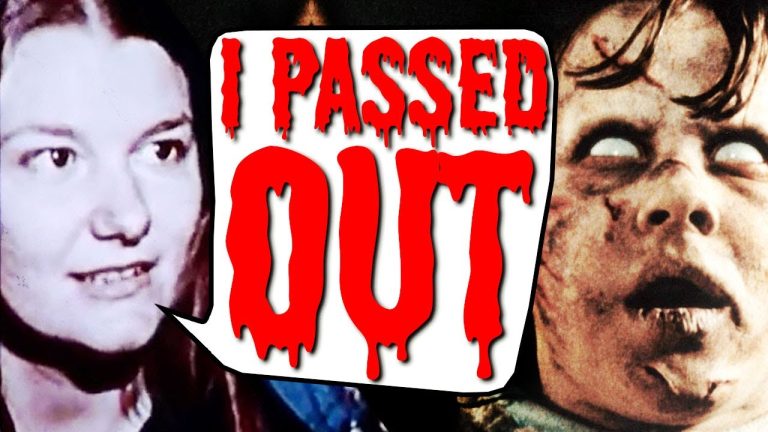Henry Bowers: The Bully From IT
If you’re a fan of Stephen King’s iconic novel, IT, or the spine-chilling movie adaptations, then you’re no stranger to the infamous character, Henry Bowers. In the dark and twisted world of Derry, Maine, Henry Bowers reigns as the ultimate bully. With his cruel demeanor and relentless pursuit of torment, he strikes fear into the hearts of both his victims and readers alike. Join me as we delve into the depths of Henry Bowers’ character, exploring his origins, motivations, and the terror he brings to the town of Derry.
When it comes to bullies, Henry Bowers takes the cake. This despicable character embodies the very essence of intimidation and cruelty. From his first appearance in King’s novel, to his on-screen portrayal in the IT movies, Henry Bowers leaves an indelible mark on the audience’s psyche. But what drives this malevolent force? What fuels his relentless torment of the Losers’ Club and other unsuspecting victims? In this article, we’ll unravel the complexities of Henry Bowers’ character and explore the dark depths of his twisted mind. So grab your popcorn and prepare for a chilling journey into the world of Henry Bowers: The Bully from IT.

Henry Bowers: The Bully from IT
Henry Bowers, the infamous bully from Stephen King’s novel “IT,” has become an iconic character in the horror genre. Known for his cruel and sadistic behavior, Bowers terrorizes the Losers’ Club, a group of young friends who must confront their deepest fears to defeat the evil entity known as Pennywise the Clown. In this article, we will delve into the complex character of Henry Bowers, exploring his motivations, actions, and impact on the story.
The Troubled Childhood of Henry Bowers
Henry Bowers comes from a troubled background, growing up in an abusive and neglectful household. His father, Butch Bowers, is a violent and racist man who instills these values in his son. This upbringing contributes to Henry’s aggressive and antisocial behavior, as he seeks to exert power and control over others in an attempt to compensate for the lack of love and stability in his life.
Throughout the novel, it becomes evident that Henry is also a victim of bullying himself. His father’s abuse and the constant belittlement he experiences at school fuel his desire to assert dominance over his peers. However, rather than empathizing with others who are also victims, Henry channels his pain into becoming a tormentor himself, perpetuating a cycle of violence.
The Reign of Terror: Henry Bowers and the Losers’ Club
Henry Bowers’s reign of terror begins when he aligns himself with Pennywise, the malevolent entity that preys upon the fears of the children of Derry, Maine. Under Pennywise’s influence, Henry becomes a formidable antagonist, orchestrating a series of violent attacks on the Losers’ Club. His primary target is Bill Denbrough, the leader of the group, whom he blames for the death of his cousin, Georgie.
Driven by his deep-seated hatred and desire for revenge, Henry stops at nothing to torment and frighten the Losers. He gathers a gang of fellow bullies, known as the Bowers Gang, who assist him in his sadistic acts. Together, they create an atmosphere of fear and intimidation, making the Losers’ Club’s lives a living nightmare.
The Losers’ Club, however, refuses to be victims and bravely confronts Henry and his gang. Through their unity and strength, they are able to overcome their fears and stand up against the relentless bully. In the final showdown, Henry is defeated, but not before leaving a lasting impact on the lives of the Losers and the town of Derry.
The Psychological Profile of a Bully
Henry Bowers’s character serves as a chilling reminder of the real-life presence of bullies in society. His actions are not merely a product of his troubled childhood but also a reflection of the psychological dynamics that drive individuals to engage in bullying behavior.
Bullies often possess a deep-seated need for power and control, which they attempt to fulfill by exerting dominance over others. They may have experienced abuse or neglect themselves, leading them to seek validation through the subjugation of their peers. In Henry’s case, his abusive father and the constant bullying he endures at school reinforce this need for power, shaping his identity as a bully.
It is important to recognize that bullies, like Henry Bowers, are not irredeemable. While their actions may be abhorrent, understanding the underlying psychological factors can help us address the root causes of bullying. By promoting empathy, fostering inclusive environments, and providing support to both bullies and their victims, we can work towards breaking the cycle of violence.
Impact and Legacy: Henry Bowers in Popular Culture
Henry Bowers’s character has left a lasting impact on popular culture, becoming synonymous with the archetype of the cruel and relentless bully. His portrayal in the 2017 film adaptation of “IT” further solidified his status as a memorable antagonist. The character serves as a cautionary tale, highlighting the destructive consequences of unchecked aggression and the importance of standing up against bullying.
Despite his villainous nature, Henry Bowers is a complex character whose actions are shaped by his troubled upbringing. By exploring his motivations and psychological profile, we gain a deeper understanding of the factors that contribute to bullying behavior. This understanding can guide us in creating a more compassionate and inclusive society, where the cycle of violence can be broken.
Conclusion
In conclusion, Henry Bowers is a character that embodies the darkest aspects of human nature. His troubled childhood, need for power and control, and alignment with Pennywise make him a formidable and terrifying antagonist. However, by examining the psychological dynamics that drive bullying behavior, we gain insight into the underlying factors that contribute to the perpetuation of violence. Through empathy, education, and support, we can work towards creating a world where bullies like Henry Bowers no longer hold sway, and where victims can find solace and healing.
Key Takeaways: Henry Bowers: The Bully from IT
- Henry Bowers is a character from the novel and film “IT”.
- He is known for being a relentless and cruel bully.
- Henry torments the main characters, the Losers Club, throughout the story.
- His actions stem from his troubled home life and desire for power.
- The character of Henry Bowers adds tension and conflict to the story.
Frequently Asked Questions
Who is Henry Bowers and what role does he play in IT?
Henry Bowers is a fictional character from Stephen King’s novel “IT.” He is one of the main antagonists in the story and plays the role of a bully. Bowers is the leader of a group called the “Bowers Gang” and takes pleasure in tormenting the main characters, especially the Losers Club. His character is known for his violent and aggressive behavior, which adds tension and danger to the narrative.
In the novel, Henry Bowers becomes a pawn of the malevolent entity known as Pennywise the Dancing Clown. Pennywise manipulates Henry and uses him to further its evil agenda. Bowers becomes a tool for the supernatural forces at play in the town of Derry, Maine, and serves as a constant threat to the protagonists throughout the story.
How does Henry Bowers contribute to the horror element of IT?
Henry Bowers adds a significant horror element to the story of IT. His character embodies the fear and terror that the main characters experience. Bowers’ relentless bullying and violent acts create a sense of dread and danger for the Losers Club. His presence amplifies the feeling of vulnerability and isolation among the protagonists, making their battle against Pennywise even more challenging.
Furthermore, Henry Bowers’ character reflects the dark side of human nature. His cruelty and sadistic behavior highlight the horrors that exist in the real world. Bowers represents the embodiment of evil in human form, showcasing the terrifying potential within individuals. His actions serve as a reminder of the horrors that can be found both in the supernatural realm and within society itself.
What motivates Henry Bowers to become a bully?
Several factors contribute to Henry Bowers’ transformation into a bully. Firstly, his upbringing plays a significant role. Bowers comes from an abusive and dysfunctional family, where violence and aggression are normalized. Growing up in such an environment shapes his behavior and influences his actions towards others.
Additionally, Bowers’ desire for power and control fuels his bullying tendencies. By dominating and terrorizing others, he gains a sense of superiority and satisfaction. Bowers’ need to assert his dominance over his peers stems from his own insecurities and feelings of inadequacy.
Does Henry Bowers experience any redemption or character development in IT?
In IT, Henry Bowers does not experience redemption or significant character development. Throughout the story, he remains a ruthless and unrepentant bully. His allegiance to Pennywise and his commitment to terrorizing the Losers Club remain unwavering.
However, it is worth noting that Bowers’ character does face consequences for his actions. Without giving away too many spoilers, he encounters his own share of horror and tragedy as the story progresses. While this does not necessarily lead to redemption, it adds depth to his character and highlights the consequences of his choices.
How does Henry Bowers’ role in IT impact the overall narrative?
Henry Bowers’ role in IT is crucial to the overall narrative. His relentless pursuit of the Losers Club and his alliance with Pennywise intensify the sense of danger and urgency in the story. Bowers serves as a physical manifestation of the evil that lurks in Derry, amplifying the stakes for the main characters.
Furthermore, the presence of a bully like Bowers adds a layer of realism to the narrative. It reflects the struggles faced by many individuals, both children and adults, who have encountered bullies in their lives. Bowers’ character serves as a reminder of the real-life horrors that can exist alongside supernatural terrors, making IT a more relatable and impactful story.
IT Ben is Attacked by Henry Bowers 1080p
Final Thoughts: Henry Bowers – The Bully from IT
As we delve into the world of Stephen King’s masterpiece, IT, one character stands out as the epitome of cruelty and malevolence – Henry Bowers. Throughout the story, Bowers terrorizes the Losers’ Club and embodies the darkest aspects of human nature. With his ruthless actions and troubled background, Henry Bowers serves as a stark reminder of the destructive power of bullying.
In conclusion, Henry Bowers’ character in IT serves as a cautionary tale about the lasting impact of bullying. His portrayal in the novel and subsequent adaptations showcases the consequences of unchecked aggression and the importance of empathy and compassion. It is crucial to recognize the harmful effects of bullying and take a stand against it, both in fictional narratives and in our own lives. By understanding the depth of pain caused by bullies like Henry Bowers, we can strive to create a more inclusive and kinder society. So let us reflect on the lessons learned from Henry Bowers and work towards a world where no one has to face the torment of a bully.






